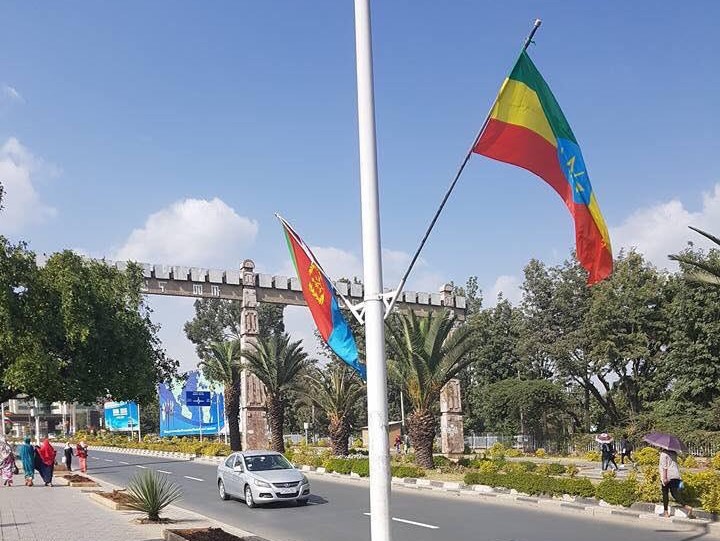
Eritrea’s first delegation to Ethiopia in 20 years brings new hope

With the visit of Eritrea’s first delegation to Ethiopia in 20 years, the Ethiopian government revealed a higher possibility of normalization of relations between the two countries since a bloody two-year border war from 1998-2000.
The Eritrean delegation headed by Foreign Minister Osman Salah was greeted at Addis Ababa Bole International Airport by Ethiopian Prime Minister Abiy Ahmed and Ethiopian Foreign Minister Workineh Gebeyehu on Wednesday.
Since then, the delegation has been conducting discussions with senior Ethiopian government officials and paying visits to Ethiopia’s development projects, including Ethiopia’s flagship Chinese-built Hawassa Industrial Park.
The new developments during the delegations’ visit to Ethiopia include the agreement to reopen embassies and redeploy diplomatic corps in each other’s soil as well as the decision to conduct meeting between the two countries’ leaders in the near future, according to the Ethiopian Ministry of Foreign Affairs.
Gebeyehu, following his discussions with his Eritrean counterpart, also stressed that the visit by the top Eritrean delegation “marks a new era of cooperation, paving the way to a bright future, on the basis of mutual cooperation.”
The two countries also revealed that there will be a one-on-one meeting between the Ethiopian prime pinister and Eritrean President Isaias Afewerki “in the near future” to discuss ways of further normalizing bilateral ties between the two countries.
Gebeyehu, who dubbed the recent developments among the two countries as a ray of hope on the lives of the peoples, said that members of the delegation have thoroughly discussed ways of improving bilateral ties.
The recent positive developments between the two neighboring East African countries have also given the global community with more confidence that relations among the two arch-rivals are normalizing.
UN Secretary-General Antonio Guterres on Thursday welcomed Eritrea’s high-level delegation visit to Ethiopia “as the first concrete step in normalizing relations between the two countries.”
Guterres, speaking through his spokesperson Stephane Dujarric, noted that diplomatic overtures to ease tensions and resolve the longstanding dispute between the two countries “will have a far-reaching and positive impact on the whole region.”
The secretary-general further reiterated the readiness of the UN to play a role in supporting the two countries in the implementation of the boundary decision or in any other area they would deem useful for the world body to assist.
Eritrea’s decision to send a delegation was the first formal response from the Red Sea nation since Ethiopia’s surprise announcement to unconditionally implement the decisions of peace agreement that ended a two-year border war from 1998-2000, which is estimated to have killed 70,000 people from both sides.
The African Union (AU) and the European Union (EU) also welcomed the recent positive moves made by the two East African nations that experienced one of Africa’s deadliest wars and the subsequent two-decade-long armed standoff.
AU Commission Chairperson Moussa Faki Mahamat commended the two countries and their leaders “for these bold and courageous steps,” according to an AU statement.
Mahamat stressed that sustainable peace between the two countries “will have a tremendously positive impact on peace and security, as well as development and integration, in the Horn of Africa region and the continent as a whole.”
“This will also be a significant contribution to the goal of ending all conflicts and wars on the continent by 2020, as pledged by the African Heads of State and Government in May 2013,” AU’s statement read.
EU’s High Representative/Vice-President Federica Mogherini also welcomed the move by Ethiopia and Eritrea to resolve their longstanding differences, saying it denotes “decisive steps towards the resolution of the longstanding differences between the two countries.”






